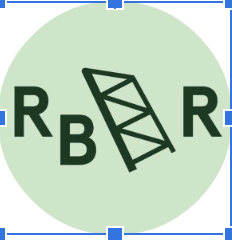





Keep this story going! Share below!
Rust Belt Riders' co-founder, Dan Brown, spoke about how his original customer target was solely businesses. The business' idea is to go to fewer locations that generate the most waste rather than going to more places that generate small amounts of waste to collect the composting materials. Businesses generate more waste than individual households. Brown brought up how he looks at the company logistically, meaning they wanted to optimize the revenue per mile. They had to figure out how to create the most efficient routes to pick up the most food scraps in the shortest amount of time. Businesses represented a unique opportunity, where they could give some PR and marketing by showing how they are saving the planet by reducing waste and therefore appeal to more customers. They started the residential program after landing a mass of commercial accounts. It made more sense to do a residential program after they decided to sell soil; they converted households into another target customer. There was a bit of a challenge in finding customers at first due to the fact that it is more expensive, but there are benefits in the fact that you're helping to clean and save the earth. Companies also get back certain information on how much of an impact they are making. Companies then use this information and promote it on their social media.
Rust Belt Riders started by collecting food scraps and other compostable material from large businesses. Brown stated that today ‘such businesses include Cleveland Clinic, Case Western, Cleveland State, and many high schools and restaurants across the city.’ When the pandemic hit they had to diversify and find a new solution as their old ones no longer were consistently viable. That is when they implemented a system where they offer to pick up compostable trash and turn that material into soil. This is essentially the same service they offered to businesses, but due to the pandemic, they had to offer other solutions. Currently, they use both systems together, produce their soil, and sell the soil.

The main issue was that there is not enough action taken by local communities to prevent harm to the environment. Brown stated, "a lot of focus is put on products such as Tesla and solar panels when it comes to helping the environment, but we knew there was a more efficient solution out there." He stated his personal inspiration to find a solution really stemmed from his aforementioned High School, with their lack of infrastructure in place to have efficient and environmentally friendly practices, and also his college degree from DePaul University in Ethics which really developed his will to find an efficient social entrepreneurship venture.
When looking at Rust Belt Riders' growth, purpose, and how they gave back while pursuing business ventures, it may be useful to look at which global goals have been impacted by the work conducted. Before then, the overall impact of the innovator can be seen within their local community. Rust Belt Riders have shown us that by picking up from local homeowners and small businesses as well as the large ones in the Cleveland area, not only are they able to have an impact on the global goals and sustainability as a whole, but also on the local community and give back to their roots.
The Rust Belt Riders team started with two individuals, Dan and Michael who rode around the city on bikes collecting compost. Michael acted as the “business guy” while Dan acted as the passionate “tree hugger” as he described himself. Dan explains that the Co-Founders complement each other really well as Dan tells their story to the world and focuses on sales while Michael is more concerned with the internal components of running a business. Rust Belt Riders operate as a worker-owned co-op and are passionate about practicing workplace democracy, something that they think is extremely important to their success. They believe that people want to work at places that genuinely care about their team and their mission, and Dan says this is something that attracts not only consumers but also employees. They operate horizontally with no system of hierarchy that makes one employee more important than another. Rust Belt Riders looks at the people on their team as their most valued asset and they provide space to create new opportunities while also paying employees above minimum wage and providing health care benefits to their team. This culture of value and democracy is so unique to the Rust Belt Riders and is imperative to their continued success. The people of Rust Belt Riders are as important to this organization as their mission or the products they sell and that is why they are able to let the work they do speak for itself.
When looking at Rust Belt Riders growth, purpose and how they gave back while pursuing business ventures, it may be useful to look at which global goals have been impacted by the work conducted. The following 7 goals are affected by the business operations that they conduct:
Get stories of positive business innovations from around the world delivered right to your inbox.
Dan Brown, Co-Founder
